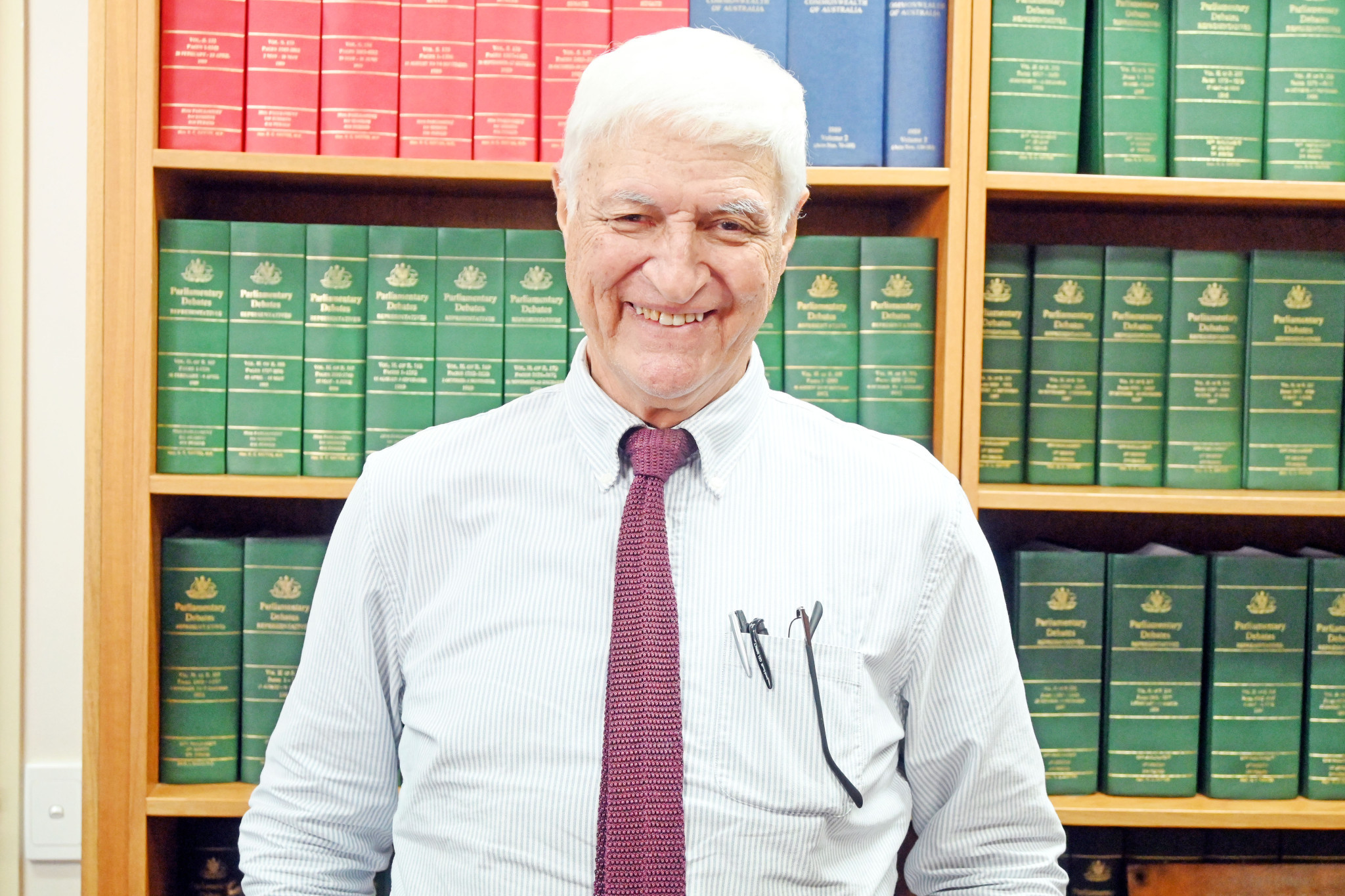General News
11 December, 2024
Bob Katter marks 50 years in politics: 'I have tried to fight every day'
Iconic politician Bob Katter marks 50 years of combined state and federal parliamentary service this month.
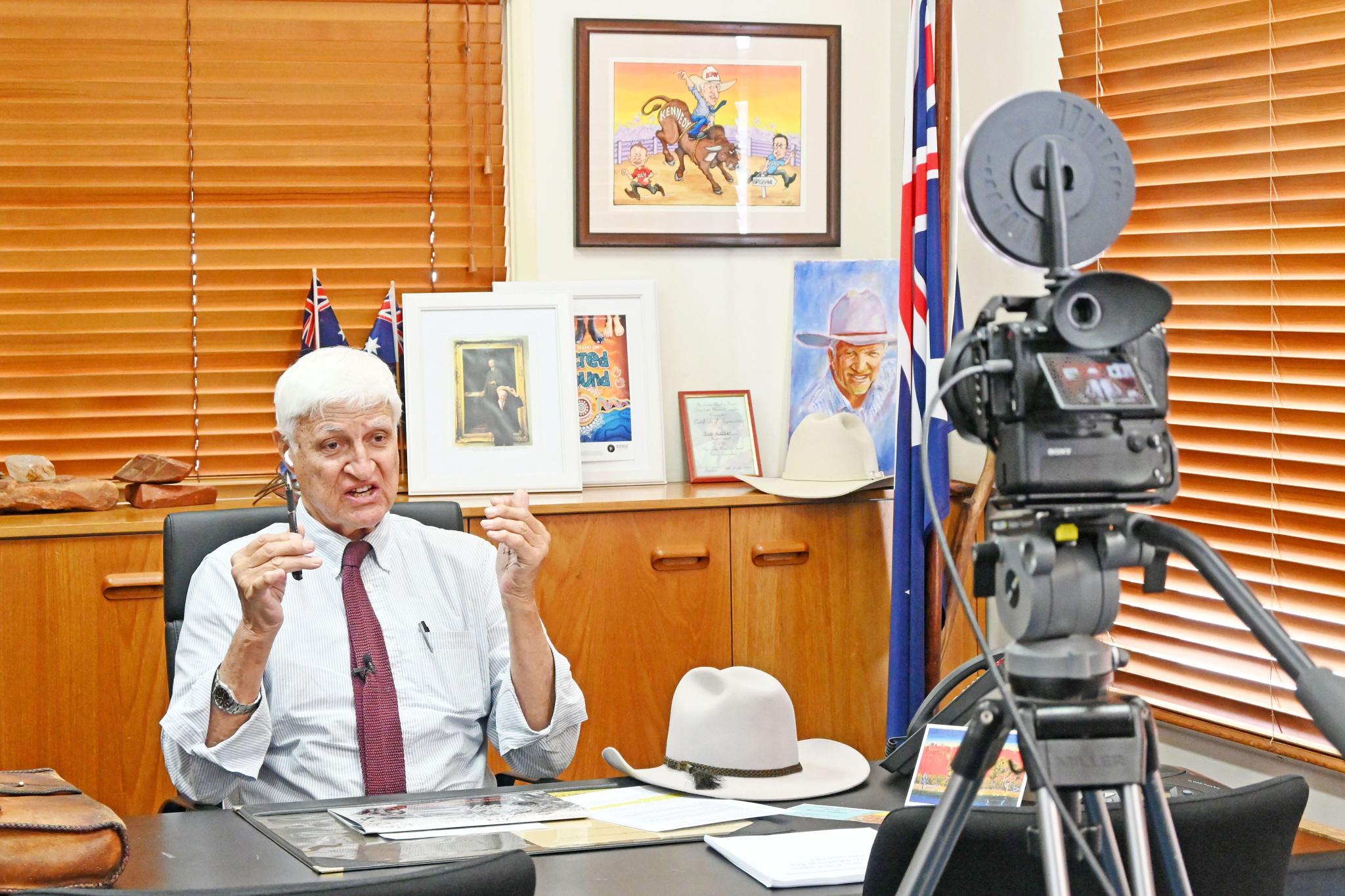
Bob Katter spent his 50th year in politics working on a long piece of writing that may turn into a short book.
It is divided into four sections – what once was, what has happened, what is, and what should be.
As he commits to another federal election, likely in the coming months – his 18th campaign across state and federal politics since he first entered the arena in December 1974 – the 79-year-old appears most consumed by “what should be” when he spoke to North West Weekly at his Mount Isa office about his long career.
“I want the KAP to create a new state in North Queensland,” Bob says abruptly.
“I can’t see any other way that we can do anything else at the present moment.”
While it is no secret that Bob sees our region’s future as needing to be severed from southern Queensland – Bob has even designed a North Queensland state flag, which has a white backdrop with a red Maltese cross in the centre flanked by kangaroo and cassowary silhouettes – there has been a growing sense of urgency in his proclamations since he created Katter’s Australia Party just over a decade ago.
He believes the “inevitable” North Queensland state could occur within the next generation if the KAP is able to secure the balance of power in Brisbane.
“Give us six to eight seats in Queensland parliament and we can change the country,” Bob said.
“You would be amazed how easily everything comes after that.”
The creation of a new state is not implausible – there is even provisions in the constitution to develop new states – suggesting our founding fathers also believed it would one day be necessary.
But Bob’s political radar is inextricably intertwined with a deep understanding of Australian history – and the past tells us that numerous new state movements in New England, the Riverina and even on the Nullarbor Plain, have failed to gain the political momentum required to win a referendum.
Bob, who compared North Queenslanders to the American Revolutionaries in his 1975 maiden speech, says a new state would provide a fresh start for rules to be created that favoured industry and development that would realise the true economic potential that lies north of the Tropic of Capricorn.
“Many senior public servants still think that the earth is fiat and that its edge lies at the Great Dividing Range,” Bob told state parliament when he spoke for the first time on March 18, 1975.
“I remind him (then-Labor state opposition leader Tom Burns) that Britain lost America over this issue of taxation without representation.
“He would know better than I how much tax is taken from north and west Queensland, from people who work hard under harsh conditions.”
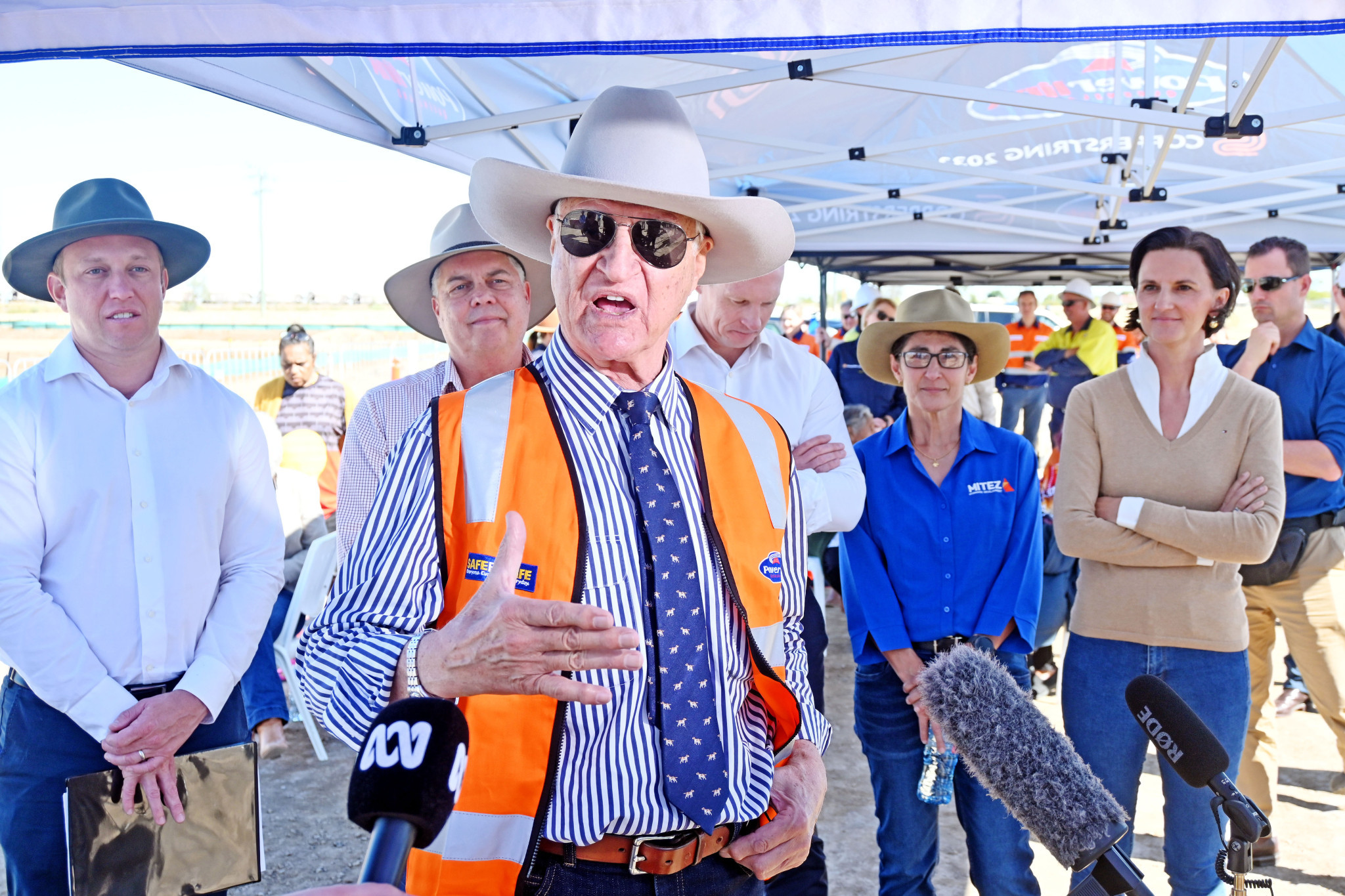
Bob says the slow decline in political will to build up the nation can be traced to the policies of the Whitlam government, which first prompted his decision to seek election to parliament.
He admits that despite being the son of the local federal MP, he was actually being asked to leave the executive of the Cloncurry branch of the Country Party just months before the 1972 federal election that swept Gough Whitlam and Labor to power for the first time in more than two decades.
“I wasn’t the slightest bit interested in politics at that time,” he laughs.
“I am not the sort of bloke that allows myself to be pushed around and told what to do, but I wasn’t even offended when they told me to stand down – I didn’t put up any fight – I didn’t really care.
“Then Whitlam was elected, and everyone was saying the world was coming to an end – one woman who was very close to our family phoned me and said we have to mobilise the army to prevent Whitlam from taking power.
“But Whitlam from his imperial heights had no idea what he was doing, and he dropped tariffs across the board by 25 per cent and entire industries started going down the drain.
“I was going to meetings and shooting my mouth off and was watching Joh Bjelke-Petersen make Whitlam bleed – that set me on the road to politics.”
It is likely no coincidence that Bob’s only published book was a broad-sweeping and “passionate” history of Australia as seen through the eyes and mind of Bob.
It would have probably been impossible for him to write anything else – he admits he had previously attempted to draft a biography of Ernest Henry – a man Bob considers among just a handful of truly visionary statesmen, but he abandoned the project when its scope grew too wide.
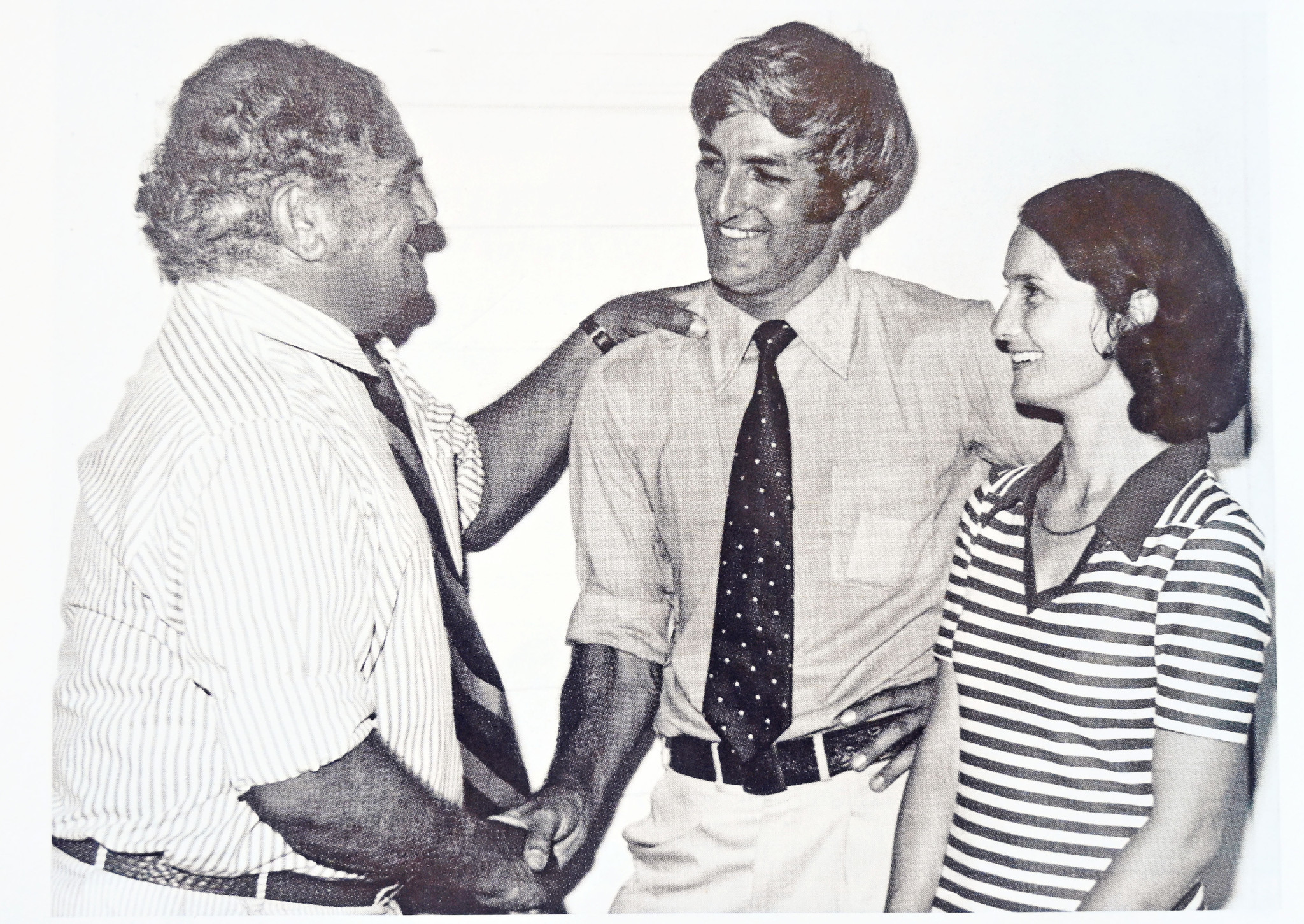
To speak with Bob for any length of time is to confront an overflowing torrent of facts and figures, including brief cameos from obscure, long-dead businessmen and politicians and detailed anecdotes from very time-specific public policy debates.
His five-decade reign in politics has made him the walking embodiment of the four chapters of his planned book – what once was, what has happened, what is and what should be.
And he often shares his thoughts on all of these categories at once.
Within a three minute train of thought, the winding rail lines of Bob’s mind can cover 90 years or more of history that connects the failed Bradfield Scheme to the declining rates of dairy farmers in the South Burnett, to a Cloncurry Tigers losing streak in the 1960s, to the need to take advantage of the “thousand million” dollars being lost in gas royalties off Western Australia each year, to the time Paul Keating and Malcolm Fraser both listed “Red Ted” Theodore as Australia’s greatest statesman.
And you probably had only asked him about the Townsville to Mount Isa bus service to begin with.
To interview Bob is to observe a wasp in a bottle buzzing around in vain for a place to land.
“I know I get off topic so just tell me to shut up and stop and move onto the next question,” he said.
This freewheeling rhetoric has frequently seen Bob lumped into the “crazy old uncle” category among the short-attention-spanned press gallery reporters in Canberra, who too often interview Bob for the colour of his speech rather than its contents.
His famous “let there be a thousand blossoms bloom” reply when asked about the prospect of gay marriage might have been viewed almost one million times on YouTube, but reportedly Bob doesn’t even remember saying it.
And while you often have to take the long road to get there, a final destination point exists in his answers.
When his train pulls into the station, Bob’s answers are honest, unpolished and reveal a lot about his true vision for the nation.
Katter’s politics are fuelled by a desire to build things – he is troubled by the rising tide of investors that would rather rest their money in the stock market than take a chance on a factory, meatworks or small mining project.
He singles out the superannuation companies for their complicity – Bob said Keating’s original intent had been for a percentage of super monies to be retained by the federal government to underpin new infrastructure projects.
And he is angry that the possibilities to build things has been reduced when the bureaucrats gradually watered down this promise.
Similarly, he sees the green movement as having purposely strangled development in green and red tape that provides a philosophical reason to “conserve” and do nothing.
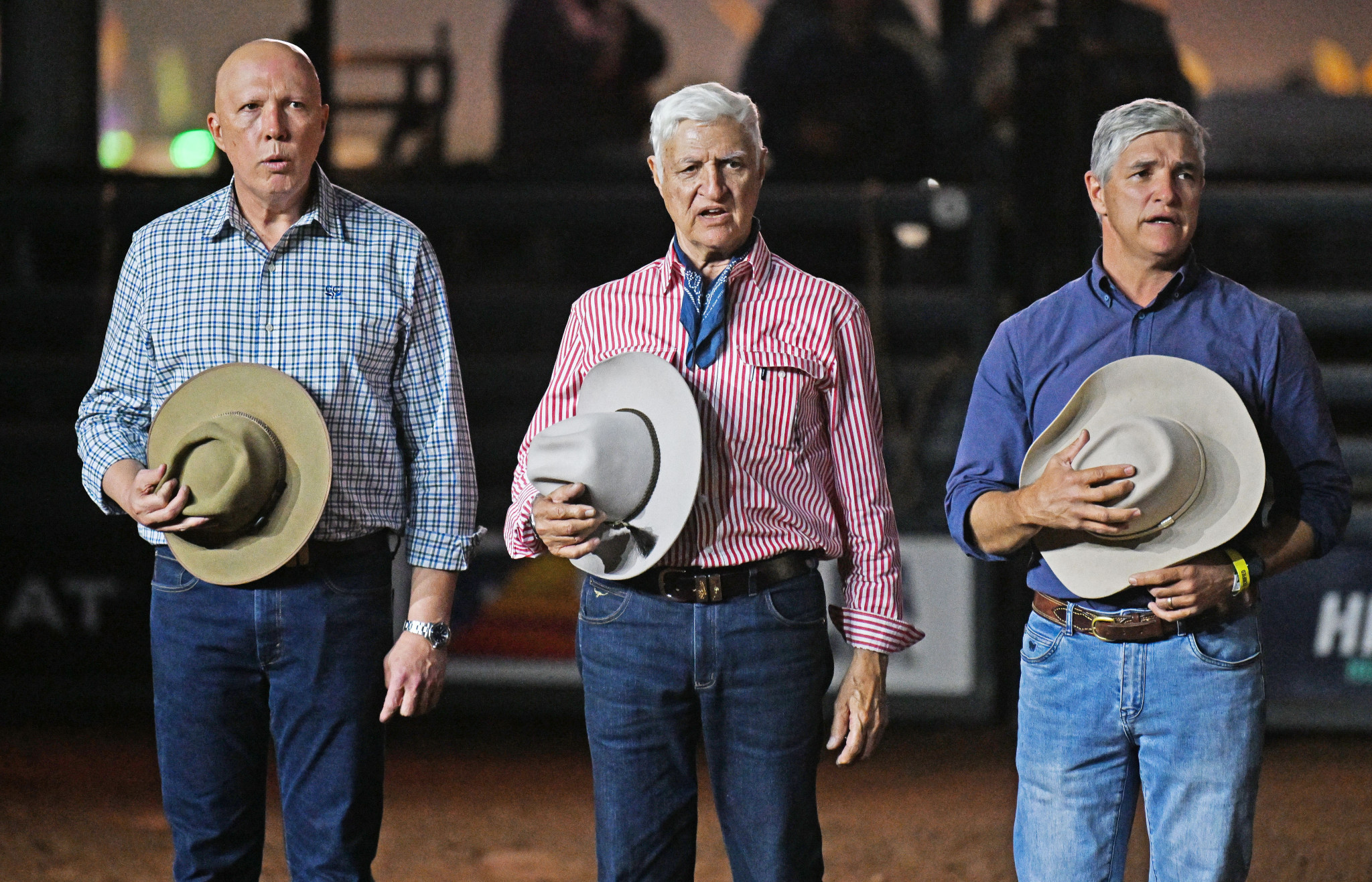
Ironically, in Bob’s 1975 maiden speech, he was an open advocate of the burgeoning green movement and the potential that recycling had to provide more refurbished building materials, solar energy had to provide cheaper power for business operators and even how entire suburbs could be constructed using bricks and walls made from sewerage and waste products.
Which brings us back to “what should be” and the potential of a North Queensland state.
Bob says he plans to contest the next election because he remains committed to his original pledge on the floor of state parliament to fight for North Queenslanders and defend the traditions of the pioneers.
He says, despite the setbacks, he has plans afoot to improve the prospects of the KAP and earn the coveted balance of power.
“Sometimes I worry I have let everyone down, but I have tried to fight every day,” he admits.
“It’s not that they hate us in Brisbane – they just don’t care – we simply don’t exist to them.
“We’ve got huge resources in North Queensland, but we can’t use them, we can’t develop.
“I have no concept of the 50 years (in politics) – it has all gone by in an instant.
“You just get up every day and try to do the right thing – Joh told me that’s what he did – and he built this state and built this country.
“We can do it, too. We just need the firepower and courage on the battlefield. We can build a new state – the fight isn’t over.”
Robert Bellarmine Carl Katter was elected to state parliament on December 7, 1974 as the Member for Flinders. He was elevated to cabinet in 1983, under Joh Bjelke-Petersen, and was a government minister until the National Party’s defeat at the 1989 state election. In 1993, Bob Katter ran for the federal seat of Kennedy and won, and has held the seat ever since. He quit the Nationals in 2001 and was an independent MP before the KAP formed.
